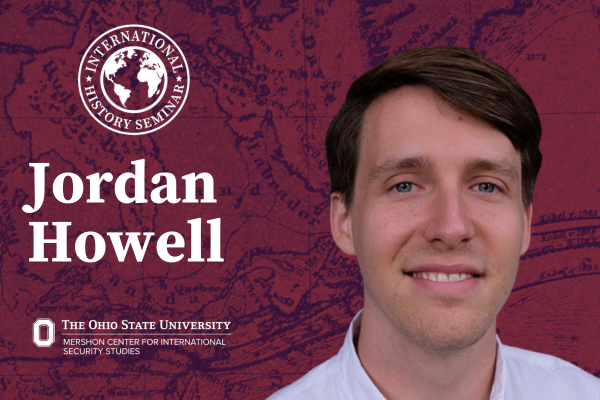
THIS EVENT HAS BEEN CANCELLED.
Title
Democracy's Imperial Arsenal: Alcoa, the American Hemisphere, and the Second World War
Abstract
Before either Chamberlain or Roosevelt had declared war on the Axis Powers, both imperial leaders knew aircraft would play a pivotal role in another global conflict. To defend the British Isles against a Nazi siege, Chamberlain had quietly built up Britain’s air force. Until the end of the war, the Royal Air Force exceeded or matched the German Luftwaffe pound for pound. The United States, too, had quietly fired up what Roosevelt called the “arsenal of democracy.” After the Wehrmacht had punched through the Low Countries and into France in the spring of 1940, Roosevelt stressed the importance of assembling 50,000 aircraft a year to defend the hemisphere. This was nearly five times the number of planes that had rolled off German assembly lines the previous year. But it wasn’t enough. In January 1942, Roosevelt doubled his own target.
To build all this aircraft, Britain and the United States needed to smelt more aluminum each year than they had smelted in the previous decade. For most of the war, the Allied powers would get all this metal from two corporations: the Aluminum Company of America and the Aluminum Company of Canada, the only firms that produced the light metal in the hemisphere. On balance sheets and in the courts, these were two distinct institutions. But through kinship and ownership, they were one.
As part of a wider book project on the Aluminum Company of America, this chapter tells the story of how Britain and the United States mobilized this two-headed behemoth for war. It focuses on three critical moments in this history: American and British state investment in aluminum plant and hydroelectric power in the Saguenay Valley of Quebec; the forging of a public-private partnership between the Tennessee Valley Authority and Alcoa; and the expansion and militarization of aluminum ore extraction in British and Dutch Guiana. In the American hemisphere, this was one of the most important economic and environmental events of the war. Why, then, has it remained obscure?
Ohio State Associate Professor of History Kip Curtis will serve as the discussant for this event.
Speaker
An assistant professor of History at the University of Manitoba, Jordan Howell is a historian of the United States in the world, with a focus on the Caribbean. He writes and teaches about empire, capitalism, and the environment. Howell’s first book, Imperial Crucible: Working for Alcoa in the Age of Empire (under contract with Columbia University Press), is about the Aluminum Company of America. It tells the story of a company that generated handsome fortunes for its founders, embroiled itself in political debates about private power in public life, and dammed rivers, built smelters, and dug mines across the American, British, and Dutch empires. At the heart of this corporate drama was a transimperial working class that built and fought Alcoa in the twentieth century.
Howell’s research has been supported by the Social Sciences and Humanities Research Council (SSHRC), the Weatherhead Center for International Affairs, and the Charles Warren Center for Studies of American History.
About the International History Seminar
This IHS is seminar is a crossover event with the Environmental History Initiative.
If you are interested in attending this semester’s events and joining the International History Seminar, please send an email confirming your interest to the Hayes Chair Graduate Research Associate, Ian Gammon, at hayeschairgra@osu.edu, and you will be included on the mailing list going forward. Materials will only be pre-circulated to people on the mailing list.
